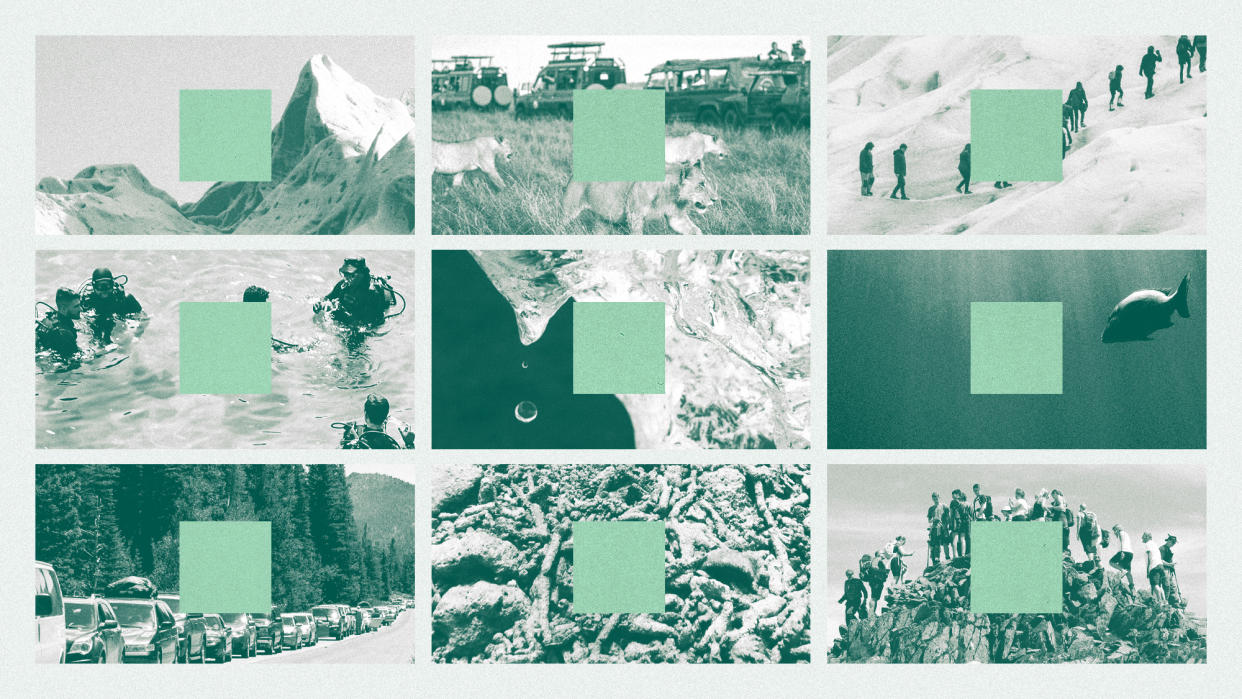Why last-chance tourism is the latest controversial travel trend

Travellers are racing to see parts of the world that could soon vanish forever due to the effects of climate change, in a trend known as "last-chance tourism".
Travel and tourism is responsible for between 8% and 11% of global greenhouse gas emissions, according to a 2021 report from the World Travel and Tourism Council. As the planet warms, many of Earth's natural wonders – such as coral reefs, glaciers and archipelagos – "are at risk of damage and disappearance", said The New York Times's Desiree Ibekwe.
A growing number of travellers are seeking to visit such sites "before it's too late". But experts warn that the trend threatens to accelerate the cycle of destruction.
What are the issues?
Popular at-risk destinations include the Mer de Glace, the largest glacier in the French Alps, where thousands of people go each year to ski. Like many other glaciers, it is "melting rapidly", said Ibekwe. A new ski lift opened recently to allow visitors to "stay closer to the retreating ice", a move that has proved controversial.
"At some point, you have to leave the glacier alone," one long-time traveller to the famous ski spot told NYT correspondent Paige McClanahan. "There's big machinery being installed. Where will it stop?"
That question is increasingly pertinent, said McClanahan. Throughout history, "humans have raced to be the first to scale a peak, cross a frontier, or document a new species or landscape", but "now, in some cases, we're racing to be the last."
Even well-meaning media coverage intended to inspire action can contribute to the problem. Last-chance tourism is happening mostly in areas that "make it into the headlines", Eke Eijgelaar, an environmental researcher at the NHTV Breda University of Applied Sciences in the Netherlands, told The Independent in 2018.
"With more and more tourists looking for new and exotic things, they are a bit more attracted by media accounts of coral losses at the Great Barrier Reef and sinking images of Venice, and then choose that as their destination," he said.
And as tourist numbers rise, not all sectors of the global tourism industry are acting responsibly. "I've seen unregulated mass tourism in much of Asia and Micronesia, where snorkellers and divers are let loose with no instructions," said ecologist Peter Mumby.
Will it stop?
Defenders of tourism cite the benefits for communities that need an economic boost. The global travel industry supported 333 million jobs in 2019, said The Times, and an estimated one-sixth of the world's population relied on that income.
There is also evidence that visiting an ecological site may lead people to become more aware of their own impact on the environment. In a 2022 study of summer visitors to Mer de Glace, 80% said they would "try to learn more about the environment and how to protect it". Another 82% said they would stop visiting glaciers if doing so would protect them, while 77% said they would reduce their water and energy consumption.
The researchers behind the study concluded that nature-based tourism can "help clarify visitors' intentions to adopt environmentally friendly behaviours" – but more research is needed to see whether tourists follow through with their intentions.
Long-term thinking is needed to protect ecologically fragile tourism sites, said Rachel Dodds, a professor of hospitality and tourism management from Toronto, speaking to The Independent.
"Without proper management and thinking about the limits to acceptable change, places are being ruined beyond repair," Dodds said. "Tourism is planned for the short-term, and policies or plans are not developed with the medium or long-term impacts."

